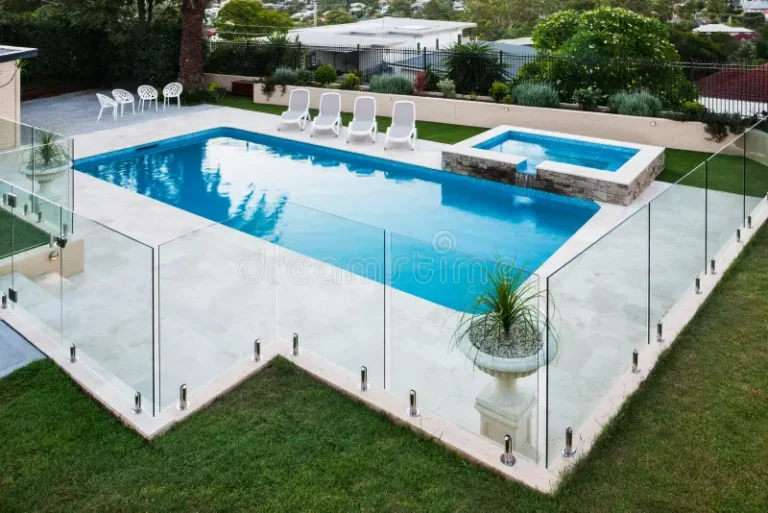
Having a pool in your backyard really can be quite amazing as long as it is full of water, offering never-ending opportunities for fun and relaxation. Along with the great privilege of owning a pool comes a great deal of responsibility, especially concerning safety. Pool fencing in Delaware is not just suggested but is mandatory according to law. This article explains why pool fencing is required, the safety and legal ramifications, and what homeowners need to know to comply with the regulations.
Importance of Pool Fencing
Pool fencing plays a crucial role in preventing accidents and enhancing safety. Accidental drownings and injuries around pools are a significant concern, especially for families with young children or pets.
Key Reasons for Pool Fencing:
- Child Safety: Reduces the risk of accidental drowning.
- Pet Protection: Prevents animals from wandering into the pool.
- Legal Compliance: Adheres to state and local safety standards.
Legal Requirements for Pool Fencing in Delaware
Understanding State Laws
Delaware mandates pool fencing to ensure that homeowners take the necessary precautions to protect their loved ones and the public. Failing to meet these regulations can result in fines and legal consequences.
Basic Legal Requirements:
- Fence Height: Must be a minimum of 4 feet high.
- Gate Standards: Gates should be self-closing and self-latching.
- Non-Climbable Design: Fences should prevent children from climbing over them.
Local Ordinances
In addition to state regulations, local ordinances may impose additional requirements. Homeowners are advised to consult their local government or a professional contractor to ensure full compliance.
How Pool Fencing Enhances Safety
Beyond meeting legal requirements, pool fencing serves as a critical safety measure for homeowners.
1. Protecting Children
Accidental drowning is a leading cause of injury-related death among children aged 1–4 years. Pool fencing creates a physical barrier, preventing unsupervised access to the pool area.
Features to Look For:
- Latch Placement: Ensure the latch is out of children’s reach.
- Visibility: Fences should allow caregivers to monitor the pool area.
2. Ensuring Pet Safety
Pets, especially dogs, are naturally curious and can accidentally fall into the pool. A sturdy fence ensures they stay safe, even when unsupervised.
3. Reducing Liability
A pool without proper fencing can make homeowners liable for accidents or injuries involving neighbors, guests, or trespassers. Fencing minimizes this risk by controlling access.
Choosing the Right Pool Fence
Selecting the appropriate pool fence involves considering safety features, durability, and aesthetics.
1. Material Options
Pool fences are available in various materials, each offering unique advantages:
- Aluminum: Durable, rust-resistant, and low maintenance.
- Vinyl: Affordable, easy to clean, and versatile in design.
- Glass: Provides a modern, elegant look with unobstructed views.
2. Key Features to Prioritize
When choosing a pool fence, prioritize features that enhance safety and compliance:
- Height: Ensure it meets the minimum legal height.
- Design: Avoid fences with horizontal bars that can be climbed.
- Strength: Opt for materials that can withstand weather and wear.
Installation Tips for Pool Fencing
Proper installation is essential for ensuring the fence is effective and meets legal standards.
1. Hire a Professional
While some homeowners may attempt DIY installation, hiring a professional ensures compliance with all regulations. Experts also have the tools and experience needed to handle complex projects.
2. Assess the Layout
Evaluate the pool area to determine the best placement for the fence. Ensure it fully encloses the pool and provides a clear separation from the rest of the yard.
3. Test the Gate Mechanism
The gate is a critical component of any pool fence. It should:
- Close automatically.
- Latch securely.
- Be tested regularly for proper functionality.
Maintenance of Pool Fencing
After installation, maintaining your pool fence ensures it remains safe and compliant over time.
Regular Inspections
Inspect the fence periodically to check for wear, rust, or damage. Addressing issues promptly prevents them from becoming safety hazards.
Cleaning
Keep the fence clean to maintain its appearance and functionality. Use mild soap and water for vinyl or aluminum fences, and specialized cleaners for glass panels.
FAQs About Pool Fencing
1. Is pool fencing mandatory in Delaware?
Yes, pool fencing is legally required in Delaware to prevent accidents and ensure safety.
2. How high should a pool fence be?
The minimum height for a pool fence in Delaware is 4 feet, though local ordinances may vary.
3. Can I install a removable pool fence?
Removable fences are acceptable if they meet safety and legal standards. However, they may require additional inspections.
4. What materials are best for pool fencing?
Aluminum, vinyl, and glass are popular choices due to their durability and low maintenance.
5. Do I need a permit to install a pool fence?
Yes, a permit is typically required. Consult your local government or a professional contractor for guidance.
Conclusion
Pool fencing is not only a legal requirement in Delaware but also an essential safety measure for protecting children, pets, and guests. Ensuring your pool area is secure reduces the risk of accidents and liability while enhancing the overall safety of your property. For expert pool fence installation, contact JPM Home Services today at (302) 598-6297. They proudly serve Delaware, Middletown, Maryland, New Jersey, and Pennsylvania, providing quality service and peace of mind for homeowners.